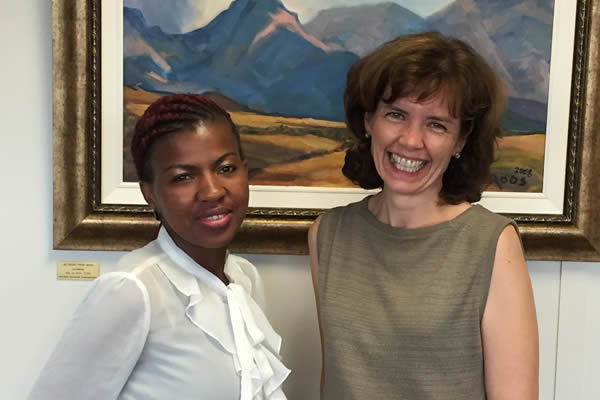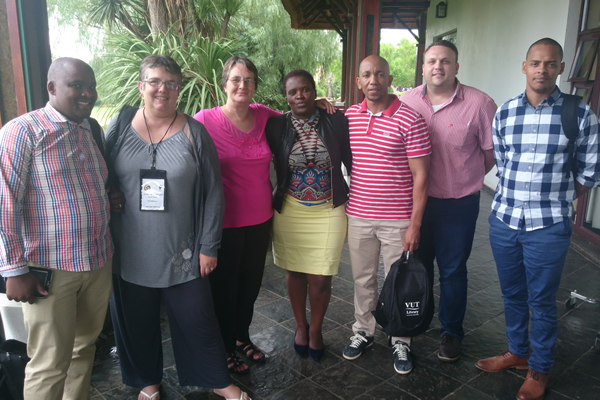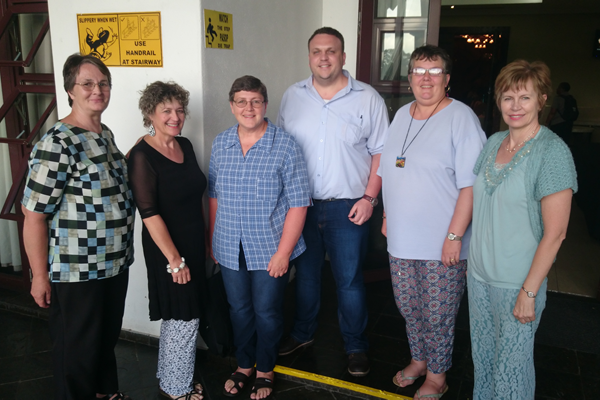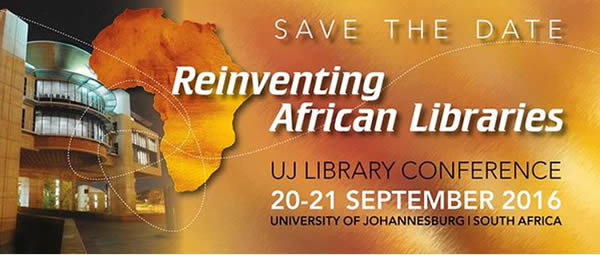NWU Library staff attended the annual IUG-SA conference at Pretoria with the theme: Library technology trends: Time for innovation.
The papers and discussions touched upon the following matters:
- Libraries should create value and become valuable, we should be seen as cost centres instead of valuable centres.
- Generation thumbs (users who always have their thumbs on their gadgets) are coming into our territory – are we equipped with necessary skills to assist this generation? Some institutions have these gadgets and put them available on short term loan.
- Different institutions shared their experience regarding social media, how they reach their users via social media platforms to promote the relationship between the library and users. Institutions use different types of social media, depending on their target and environment. Facebook , twitter, youtube and wikis came up to be the most preferred types of social media. Social media should be used according to university policy.
- One institution mentioned that they make use of a calendar, it runs on weekly/monthly basis where they have the opportunity to indicate library events and workshops – clearly visible for users.
- The population of statistics on the CHELSA database also came to discussion, as some institutions are not co-operative regarding regular provision of their own statistics. The statistics assist institutions to benchmark and should be shared from regional to national level.
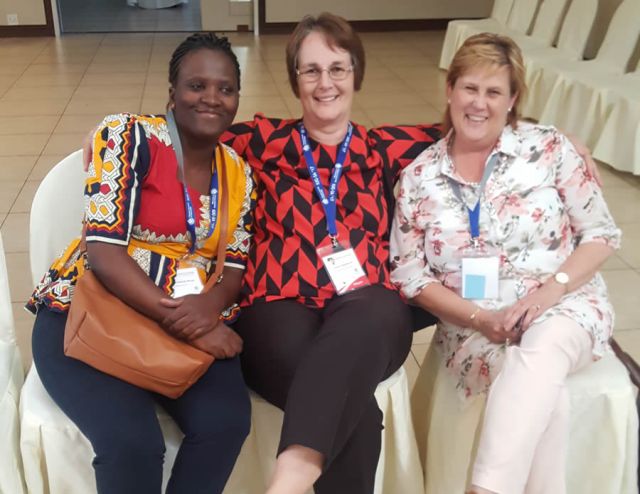

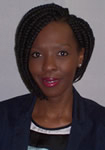 Dina Mashiyane, Librarian: Undergraduate Support did a presentation on the redesigning of library spaces to meet the needs of millennials. The traditional noise-restricted library has shifted to a casual environment conducive to social interaction and inevitably higher noise levels. This then breeds a behaviour of socialization which tends to be difficult to manage and may disrupt academic productivity. It seemed that other libraries could identify with this problem.
Dina Mashiyane, Librarian: Undergraduate Support did a presentation on the redesigning of library spaces to meet the needs of millennials. The traditional noise-restricted library has shifted to a casual environment conducive to social interaction and inevitably higher noise levels. This then breeds a behaviour of socialization which tends to be difficult to manage and may disrupt academic productivity. It seemed that other libraries could identify with this problem.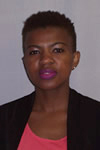 In a very relevant paper Zine Sapula, Librarian Research Support, unpacked the emerging and alternative LIS roles and functions of the 21st century librarian. Over the years, academic librarians have been known as support staff rather than research enablers. Academic libraries have added new emerging services such as research data management, digital humanities, and scholarly communication in support of digital scholarship.
In a very relevant paper Zine Sapula, Librarian Research Support, unpacked the emerging and alternative LIS roles and functions of the 21st century librarian. Over the years, academic librarians have been known as support staff rather than research enablers. Academic libraries have added new emerging services such as research data management, digital humanities, and scholarly communication in support of digital scholarship.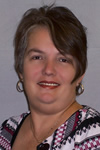 In the presentation of Carine Basson, Senior Librarian eResources, she showed how the weeding of printed journals contributed to the repurposing of library spaces at the Potchefstroom Library. She explained the weeding process, the difficulties that were experienced and also provided valuable advice. As weeding tends to be a sensitive issue, the presentation was received positively.
In the presentation of Carine Basson, Senior Librarian eResources, she showed how the weeding of printed journals contributed to the repurposing of library spaces at the Potchefstroom Library. She explained the weeding process, the difficulties that were experienced and also provided valuable advice. As weeding tends to be a sensitive issue, the presentation was received positively.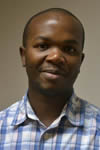 Siviwe Bangani, Manager of Information Services (Mahikeng), analysed the usage of the InterLending Services (ILS) for the past five years. This paper established the trends in usage of ILS, language representation of documents requested via ILS, and use of ILS as collection development tool. Very good news is that this paper is currently under review by the South African Journal of Libraries and Information Science for publication. Congratulations to Siviwe and other Mahikeng colleagues who contributed to the paper!
Siviwe Bangani, Manager of Information Services (Mahikeng), analysed the usage of the InterLending Services (ILS) for the past five years. This paper established the trends in usage of ILS, language representation of documents requested via ILS, and use of ILS as collection development tool. Very good news is that this paper is currently under review by the South African Journal of Libraries and Information Science for publication. Congratulations to Siviwe and other Mahikeng colleagues who contributed to the paper!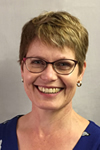 Martha van der Walt, Branch Librarian: Education Sciences did a presentation on library services to distance education students, and how they are dealing with the challenges at the Education Library. The audience agreed that this is a challenge at all libraries due to the profile (barriers, language, skills) of distance students.
Martha van der Walt, Branch Librarian: Education Sciences did a presentation on library services to distance education students, and how they are dealing with the challenges at the Education Library. The audience agreed that this is a challenge at all libraries due to the profile (barriers, language, skills) of distance students.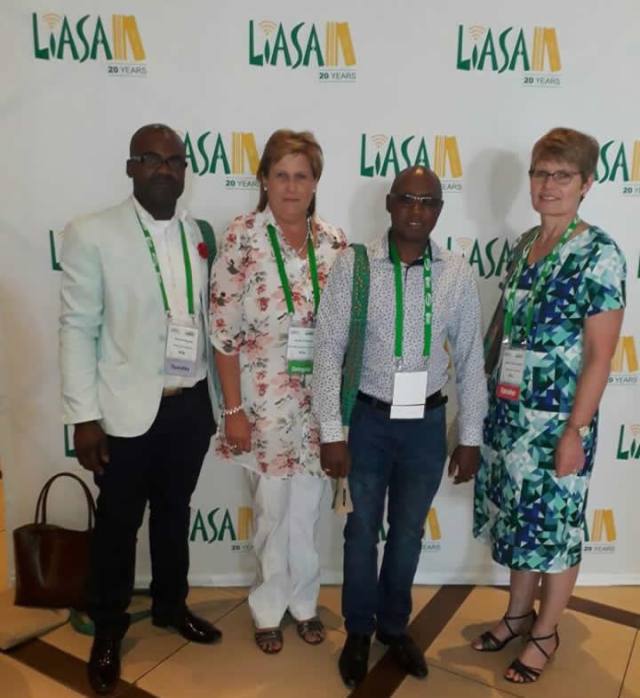

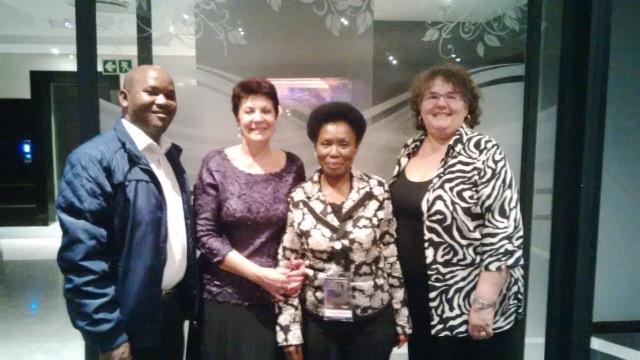
 The annual Innovative User Group (IUG) conference was held in Maryland USA from the 2nd to the 5th of April 2017. This conference brings together users of Innovative Interfaces (a vendor for specialist Library Management systems) to share and learn from each other through presentations, Birds of a feather sessions and personal networking. During the conference staff from Innovative also present on what is current and future developments for their Library systems while interacting with users of their systems on ground level.
The annual Innovative User Group (IUG) conference was held in Maryland USA from the 2nd to the 5th of April 2017. This conference brings together users of Innovative Interfaces (a vendor for specialist Library Management systems) to share and learn from each other through presentations, Birds of a feather sessions and personal networking. During the conference staff from Innovative also present on what is current and future developments for their Library systems while interacting with users of their systems on ground level.

